Tom Baldwin
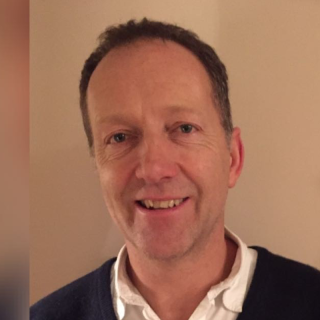
Tom is a journalist and writer. As a former Assistant Editor of The Times, he worked in both Westminster and Washington. Between 2011 and 2015, he was the Labour Party’s Director of Communications. He later ran strategy and communications for the People’s Vote campaign. Tom is the author of several books including, Ctrl Alt Delete How Politics and the Media Crashed Our Democracy and most recently, Keir Starmer - the Biography. His new book, England: Seven Myths That Changed a Country – and How to Set Them Straight is co-written with Marc Stears and published by Bloomsbury.
James Baggaley
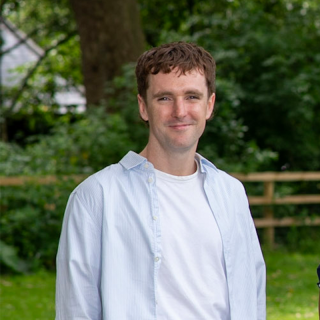
James Baggaley is a strategic communications and external affairs specialist who has worked on range of issues, including climate change, global health and social justice. Before coming to the UCL Policy Lab, James led a team at King's College London focused on Global Health and International Development, including leading the policy engagement to the COVID-19 pandemic in the UK and internationally. Before that, James worked at Amnesty International on domestic and international Human Rights campaigns. James is passionate about the Lab's ability to bring together experience and ideas to help deliver lasting change. As Head of Communications for the UCL Policy Lab, James is editor of the UCL Policy Lab magazine, which works to share compelling ideas through the lens of everyday experiences.
- What makes you hopeful?
One of the privileges of working at the Lab is visiting and meeting amazing places and people across the UK. It’s genuinely a tonic. You quickly realise that amongst all the challenges, there is tremendous energy and innovation just below the surface. Imagining what we could achieve if we tapped into that energy gives me a massive amount of hope.
Nigel Ball
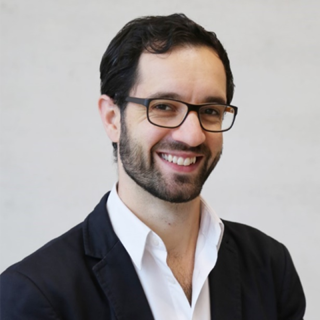
Nigel is an entrepreneurial leader with a track record in social change spanning government, social enterprise, and academia. He is currently Director of the new Social Purpose Lab at University of the Arts London. Prior to this, Nigel was the inaugural Executive Director of the Government Outcomes Lab at Oxford University, where he led a team that uncovered cutting-edge research insights into cross-sector partnerships, and worked with public, private and social sector leaders to improve collaboration practices. In former roles he was part of the founding leadership team of West London Zone for Children and Young People, the Head of Innovation at Teach First, and supported social entrepreneurship in East Africa.
- What makes you hopeful?
There is such power within our communities to collectively imagine a better future and a role for everyone in helping to bring it about. If we have those conversations, we might realise we all agree on more than we think.
Emily Bolton
Emily Bolton founded and leads Our Future, an organisation and approach that unlocks the potential and power of leaders in deindustrialised communities to build a flourishing future. Emily has a long record in social innovation in the UK and US. She has founded or co-founded several organisations and partnerships that have created lasting widespread change. This includes setting up the first Social Impact Bond in Peterborough Prison and The Drive Project which has catalysed a national response to perpetrators of domestic abuse. She has a deep understanding of the strategic, financial and operational requirements of delivering change both on the ground and systemically.
- What makes you hopeful?
There is such power within our communities to collectively imagine a better future and a role for everyone in helping to bring it about. If we have those conversations, we might realise we all agree on more than we think.
Anoosh Chakelian
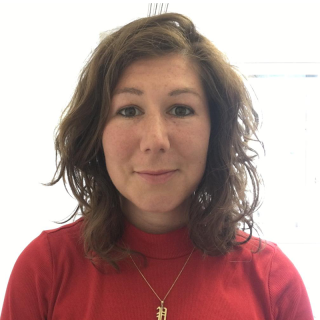
Anoosh is Britain Editor of the New Statesman, where she covers policy, politics and social affairs, and interviews high-profile figures. She is host of the award-winning New Statesman Podcast and co-presents the Westminster Reimagined podcast series with Armando Iannucci. She appears regularly on national media as a commentator on current affairs.
- What makes you hopeful?
What gives me hope is reporting on creative and resilient responses among Britain's communities to the ravages of austerity - and a politics that echoes their pride, struggle and quest for what really matters in life.
Graeme Cooke

Graeme is Senior Advisor on work & pensions at the Labour Party. Before that he lead the evidence, economics, and policy teams at JRF to achieve a deeper understanding of the causes and nature of poverty across the UK and develop bold, creative, and credible policy solutions. Previously Graeme was Director of Inclusive Growth at the London Borough of Barking and Dagenham, where he had responsibility for regeneration, housing, planning, economic development, employment, energy, and environment. His other roles include Head of Strategy at the London Borough of Islington, Director of Research at the Institute for Public Policy Research and Expert Adviser to the Secretary of State for Work and Pensions.
- What makes you hopeful?
I spent some time recently with an amazing group of people involved with a peer support organisation called PFG (People Focused Group) in Doncaster. From small beginnings, they are pioneering an approach to community-based support for people having a tough time: harnessing the power of friendship and care, building people’s own sense of agency and purpose, and tapping into the wisdom and empathy of those who have been there before. It felt like the future to me.
Chris Curtis
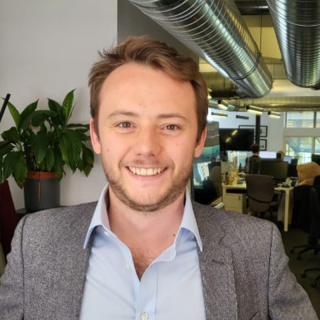
Chris is the Head of Political Polling at Opinium, having previously worked in YouGov’s political team. He works on Opinium’s UK wide polling series for the Observer, as well as conducting regular research for Sky News and The Sun. He is a regular commentator on the polls and politics, having written for The Times, The Guardian and The New Statesman on these subjects.
Piali DasGupta
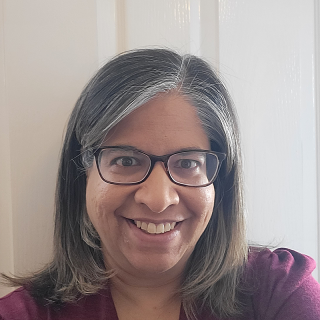
Piali is Strategy Director, London's Future at London Councils, helping boroughs to deliver their Shared Ambitions on issues such as achieving net zero, increasing the supply of good quality affordable housing and enhancing opportunities for Londoners through access to skills and jobs. Prior to that, she held senior roles at a number of councils, including London Borough of Newham, Surrey County Council and Birmingham City Council. She has also led policy teams and campaigns at the Local Government and Solace. Piali got her professional start with the Government of Canada, where she led the team that developed the country's national homelessness strategy. In her free time, she loves to indulge in travel, photography, art exhibitions and theatre.
- What makes you hopeful?
I’m optimistic about the future because I hear people using words like “dreaming”, “thriving” and “abundance” when it comes to their communities. Not just residents and community groups, but in councils too. Even after all of the years of austerity, seeing that people aren’t settling for a “just enough” mindset and are still bold about what they imagine for their communities gives me so much hope.
James Graham
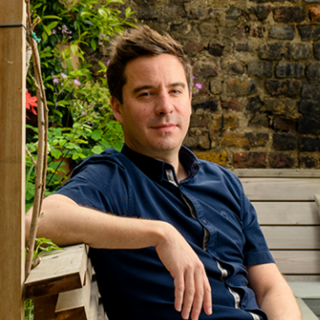
James is an award-winning playwright and Honorary Professor of Practice at the UCL Policy Lab. His most recent work, Dear England, transferred from a sell-out run at the National Theatre to the West End. Previous work includes the HBO and Channel 4 drama Brexit starring Benedict Cumberbatch. Other theatre work includes This House at the National Theatre and West End, 2016. Privacy transferred from Donmar Warehouse to The Public Theater in 2016. The Vote was broadcast live on the U.K. election night in 2015 and nominated for a BAFTA. James’ screenwriting includes the political drama, Coalition (Channel 4) winner of the Royal Television Society award for Best Single Drama. His first feature film X+Y was selected at the Toronto International Film Festival 2014.
Yasmin Ibison
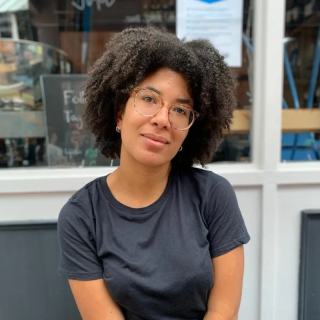
Yasmin is a Senior Policy Adviser at JRF. She will be leading on the commissioning of thinkers and practitioners with original ideas exploring deeper cross-cutting issues related to poverty. Previously, Yasmin worked at Black Thrive Lambeth managing the employment workstream, which sought to improve employment outcomes for Black people with long-term health conditions in Lambeth, South London. She also previously ran her own social enterprise which worked with young Londoners to widen access to arts and cultural spaces.
- What makes you hopeful?
I return to this quote from one of my favourite writers bell hooks on hope - “Hope is essential to any political struggle for radical change when the overall social climate promotes disillusionment and despair.” Her writing on Black feminism and class will always be a source of hope and inspiration for me.
Alisha Iyer
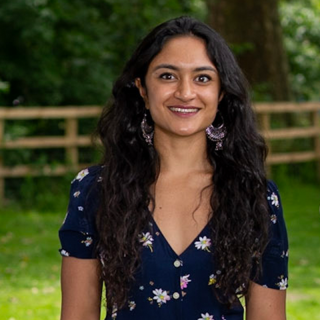
Alisha joined the UCL Policy Lab to help develop Ordinary Hope, as well as managing other projects that foster the Lab’s collaborative ecosystem for change. She is a policy specialist, having previously worked in policy and strategy roles across the civil service, in the Department for Digitial, Culture, Media and Sport, the Department for Education and the Department for Environment Food and Rural Affairs. Her expertise and interests lie in policies around addressing inequalities, including skills and technical education and improving the social mobility and diversity of the UK workforces. She also previously co-founded a community based organisation working with refugees in Southwest Uganda, winning the Alastair Ramsay Award for International Social Responsibility.
- What makes you hopeful?
When getting ready for a swim in my local leisure centre in Southwark, the smallest interactions with and between the older women, who are from all walks of life and seemingly strangers, but support each other in such simple ways, restores my hope. In the same space, on a family swim day, hearing the observations, revelations and emotional awareness of kids, just being themselves, regularly reminds me of the hope I have in future generations.
Chrisann Jarrett
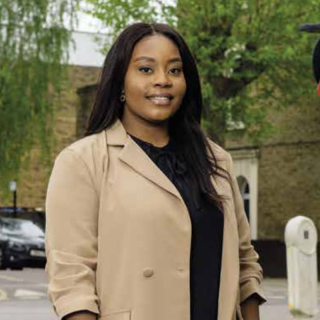
Chrisann is the CEO of We Belong, the UK’s first national migrant youth-led organisation working to improve individual outcomes and driving systemic reform to the UK immigration system. We Belong believed in Lived Experience Activism and builds on the success of the Let Us Learn project, founded by Chrisann in 2014 which focussed on campaigning and strategic litigation, changing student finance policy impacting 2,000 young migrants every year. Chrisann has led sustained national campaigns accelerated path to citizenship impacting over 330,000 children and young people. After graduating with a law degree from the LSE, Chrisann was a Policy Advisor to the Deputy Mayor of London on Social Integration and has spoken at the United Nations on the topic of mainstreaming youth in global migration governance. Since 2021 she has been an independent consultant for Trusts and Foundations working to advance systems change and youth-led activism in the UK.
- What makes you hopeful?
The pandemic allowed us to identify united communities across the country, neighbours looking out for each other in the face of uncertainty, showing appreciation and a willingness to make changes to the ways we think and how we do things. Operating in the uncertain compels us to explore the possibilities of the future, taking time to listen, be in communion with each other, acknowledging that everyone has a part to play in development of this county and in a share of its bounty. I am hopeful that if this level of connectivity can be tapped into, it can create and renew bonds both local and national and create better policies outcomes. This gives us a better chance of getting things right.
Paul Kissack

Paul is the Group Chief Executive of Joseph Rowntree Foundation (JRF) and Joseph Rowntree Housing Trust (JRHT). Paul started with us on the 1 September 2020, and was previously a Director General in the UK Government working on the national response to the COVID-19 crisis. He has held Director General roles at the Department for Environment, Food and Rural Affairs and the Department for Education. He was Deputy Chief Executive for Policy and Organisational Strategy at the Ministry for Children in New Zealand. Paul has also held senior roles at HM Treasury, the Cabinet Office, and a local authority. He has worked throughout his career on economic and social policy issues and public service reform.
- What makes you hopeful?
One thing that gives me hope is that, in so many different communities across the country, there are people defying the fatalism and narrowness that can too often grip the national policy debate. They’re not waiting for the cavalry to arrive: they have decided they are the cavalry. Grounded in a sense of place and community, they are building potential futures in the present – designing and building everything from more human relational support for those who need help, to more democratic forms of wealth ownership. They’re often not working to a grand vision for the future, or at a grand scale. But it is social policy at a more human scale, and it can be radical work.
Lindsey Macmillan
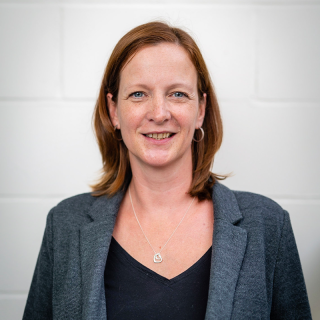
Lindsey is the Founding Director of the Centre for Education Policy and Equalising Opportunities (CEPEO), creating new research to inform evidence-led education policy and wider practice to equalise opportunities across the life course. She is also a Research Fellow in the Education and Skills sector at the Institute for Fiscal Studies, and a Visiting Professor at the Centre for Analysis of Social Exclusion at London School of Economics. Lindsey is an elected member of the Scottish Economic Society Council, and Co-Editor of Education Economics. Lindsey's research considers the role of early skills, education, and labour market experience in the transmission of incomes and work across generations. She has written on topics relating to educational inequalities, including the impact of selective schooling systems on social mobility, understanding the improved performance of London pupils, and the characteristics and outcomes of those who undermatch in higher education.
- What makes you hopeful?
When we hope, we want something to be true, we believe that it can be so. Ordinary hope was born from our collective will; with collaboration and dedication we can and will create a future where life chances don’t depend on the circumstances of birth. We work to achieve this through shining light on the policies most likely to equalise opportunities throughout childhood and beyond. This is our mission, our hope and we believe it can be our reality.
Maff Potts
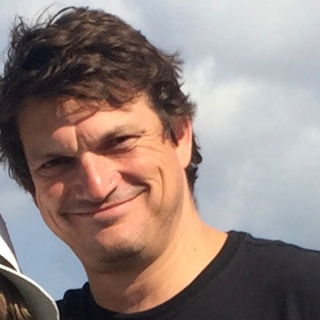
Maff went from being homeless to running the biggest homeless provider in the country in 7 years. In that time he also turned the Millennium Dome into a homeless shelter, re-wrote the UK Government’s policy for homeless centres and oversaw the building of £170 million worth of homeless projects. Having also been a CEO of charities and housing associations he now believes that real social change comes through social movements and has set up Camerados. Camerados helps communities open public living rooms where people having tough times can look out for each other. They have done this in a hospital, library, prison, football stadium and other locations in the US and UK. You can find out more at www.camerados.org.
- What makes you hopeful?
I'm in contact with a sea of people - community organisations, movements, entrepreneurs - just getting on with it at a local street level and getting great things done no matter what storm they are in. The political landscape, lack of funding, spikes in bad mental health, cost of living... these are just the weather. They put a coat on and go out into it anyway - and their "coat" is almost always a relationship with someone local and they figure it out together.
James Purnell
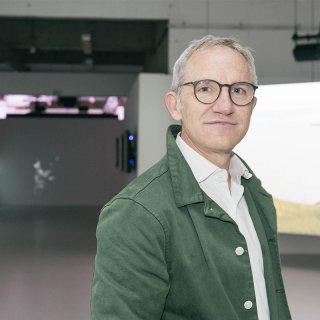
James is President and Vice-Chancellor at University of the Arts. James arrived at UAL from the BBC where he served as Director of Strategy and Digital. In 1997, James became Special Adviser on the Knowledge Economy, including the arts, internet and broadcasting policy, to Tony Blair after he became Prime Minister. He was elected Member of Parliament for Stalybridge and Hyde, before becoming Secretary of State for Culture and then for Work and Pensions. In 2009, as Secretary of State for Culture, James commissioned the McMaster Review, which reset the debate around access and excellence in culture. James has also served on the boards of the National Theatre, the Young Vic and the BFI.
- What makes you hopeful?
Every day I am hugely inspired by the students across UAL and their commitment to being active citizens and engaging with the world around them. Their passion and determination for change is a key reason for UAL’s commitment to becoming a social purpose university. Engaging with our fantastic students makes me hopeful that we can achieve that goal and support our students to change the world through their creative endeavour.
Marc Stears
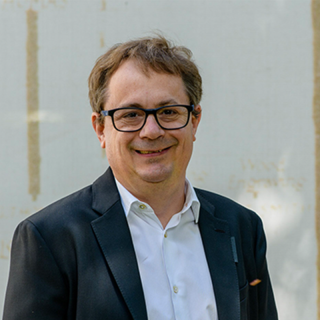
Marc is an academic, political strategist, speechwriter and executive educator, who specialises in creating dynamic collaborations between academic researchers and broader society. Currently the inaugural Director of the UCL Policy Lab, Marc has previously been Director of the Sydney Policy Lab at the University of Sydney, CEO of the New Economics Foundation, Professor of political theory at the University of Oxford and chief speechwriter to the UK Labour Party. He is the author of several books from the world’s leading presses, including Out of the Ordinary published by Harvard University Press in 2021. His new book, entitled England: Seven Myths That Changed a Country – and How to Set Them Straight, is co-authored with Tom Baldwin and published by Bloomsbury.
- What makes you hopeful?
I am always at my most hopeful walking around Hackney, where I am lucky enough to live, on a sunny Sunday afternoon. Just seeing the wonderful community all out together -- going shopping, heading back from church, having lunch, dashing to work, making memories -- reminds me that what appears the most ordinary in life is actually what is most extraordinary. As Dylan Thomas once said, there’s no contradiction between the parochial and the magical. They are one and the same.
Jon Stokes
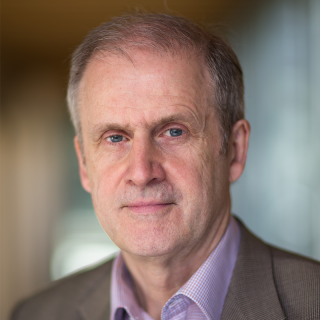
Jon is a director of the leadership advisory firm Stokes & Jolly. He is a Chartered Clinical Psychologist and accredited Executive Coach & Supervisor, a Clinical Associate of the British Psychoanalytical Society, and a former Senior Fellow at Said Business School. Jon has worked as a leadership advisor for over 30 years across many sectors in both the UK and abroad. Recent publications include From Ego to Eco: Leadership for the 4th Industrial Revolution (Said Business School, 2020) and, with Jan Hall, Changing Gear: Creating the Life You Want After a Full-On Career (Headline Home, 2021).
- What makes you hopeful?
The sense that a new form of politics is emerging, the realisation that top-down change initiatives have their limitations, and that interventions that work at the local level is sometimes a more effective approach. This means those, including professional politicians, who want change to happen don't necessarily best lead from the front, but act as facilitators and enablers. A less "heroic" model of leadership, which is about creating a vision of the future together with others and then building collaborative relationships to bring this vision into being.
Xiaowei Xu
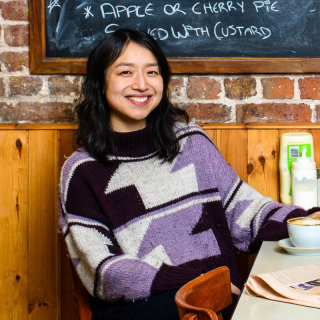
Xiaowei is Senior Research Economist at the IFS. She joined the IFS in 2018 and works in the income, work and welfare sector. Her research focuses on inequalities in labour market outcomes and health. Before joining the IFS, she worked at McKinsey, the Gates Foundation and in economic consulting. Xiaowei is a regular commentator on recent economic developments in all fields of media. She regularly publishes in high-profile academic outlets and her work featured in the recent IFS Deaton Review of Inequality.
 Close
Close

